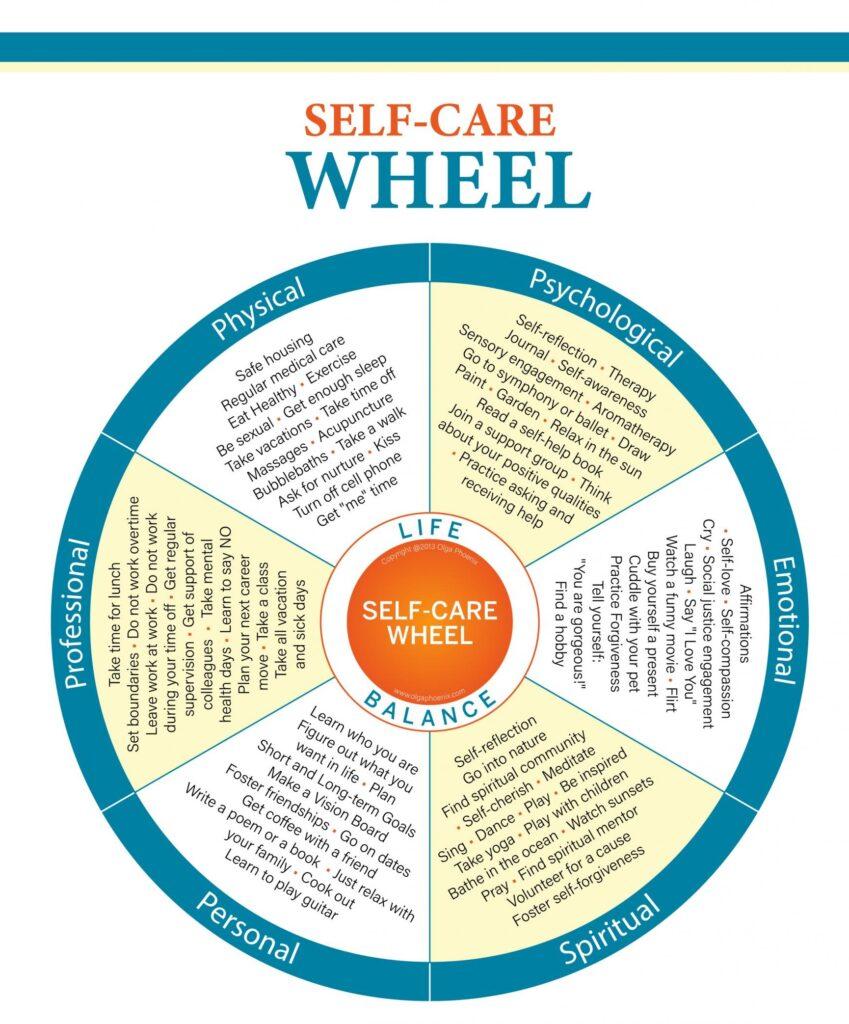
usWeThe entrepreneurial journey is an exhilarating adventure, driven by vision and ambition. We embark on this path with dreams of success, innovation, and growth. However, this journey is not without its challenges. Two significant obstacles that often hinder entrepreneurial progress are procrastination and perfectionism. These seemingly distinct traits can join forces, creating a paralyzing duo that stifles entrepreneurial growth. In this blog post, we will delve into the detrimental effects of procrastination and perfectionism on entrepreneurs and provide practical strategies to break free from their grip.
Understanding Procrastination and Perfectionism
Defining Procrastination and Perfectionism
Before we explore the impact of procrastination and perfectionism on entrepreneurs, let’s first define these two concepts.
Procrastination is the act of delaying or postponing tasks or decisions. It often results from a desire to avoid discomfort, anxiety, or fear associated with a particular task. Procrastination can lead to missed opportunities and hinder progress.
Perfectionism, on the other hand, is the pursuit of exceptionally high standards and a strong desire to avoid making mistakes. While having high standards can be a driving force for success, extreme perfectionism can lead to analysis paralysis and fear of taking action.
Both procrastination and perfectionism can be motivating, but they can also become paralyzing when taken to the extreme.
The Paralyzing Effects of Perfectionism
Analysis Paralysis: Overthinking and Overanalyzing
Perfectionism often leads to analysis paralysis, where we become trapped in a never-ending cycle of overthinking and overanalyzing. We want every decision and action to be flawless, which can lead to hesitation and inaction. This over-analysis can severely hinder progress.
Fear of Making Mistakes: The Perfectionist’s Dilemma
Perfectionists fear making mistakes, and this fear can be paralyzing. They may avoid making decisions or taking action because they are afraid of making the wrong choice. This fear can prevent entrepreneurs from seizing opportunities and trying new approaches.
Impact on Innovation: Stifling Creativity
Innovation often involves taking risks and trying new things. Perfectionism can stifle creativity and innovation because it discourages entrepreneurs from stepping outside their comfort zones. This can lead to stagnation and missed opportunities for growth.
The Procrastination-Perfectionism Loop
Procrastination and perfectionism often go hand in hand, creating a self-sustaining loop that can be difficult to break. Here’s how the loop works:
Setting High Standards: Perfectionists set incredibly high standards for themselves and their work.
Fear of Falling Short: The fear of falling short of these high standards can lead to procrastination. Entrepreneurs may delay tasks to avoid potential mistakes.
Procrastination Begets Perfectionism: Procrastination reinforces perfectionism by creating a backlog of tasks, increasing the pressure to meet high standards.
This loop can paralyze us and prevent us from taking action and making progress.
Overcoming Perfectionism: Strategies for Entrepreneurs
Breaking free from the grip of perfectionism is crucial for entrepreneurial success. Here are some strategies for overcoming this paralyzing trait:
Set Realistic Standards
Rather than aiming for unattainable perfection, set realistic and achievable standards for yourself and your work. Understand that mistakes are a part of the learning process and can lead to growth.
Manage Expectations
Manage your expectations by accepting that not every decision or action needs to be flawless. Embrace the idea that it’s okay to make mistakes and that they can be valuable learning experiences.
Focus on Progress, Not Perfection
Shift your focus from achieving perfection to making progress. Celebrate small victories and incremental improvements. This change in mindset can help you stay motivated and reduce the fear of making mistakes.
Take Action
To break the procrastination-perfectionism loop, take action even when you feel the urge to procrastinate. Start with small steps and gradually work your way up to more significant tasks. Action is the antidote to procrastination and perfectionism.
Seek Feedback
Seek feedback from mentors, peers, or trusted advisors. They can provide valuable insights and help you gain perspective on your work. Constructive feedback can be a powerful tool for growth.
Embrace Failure
Recognize that failure is a natural part of the entrepreneurial journey. Embrace failure as an opportunity to learn and improve. Many successful entrepreneurs have faced setbacks and failures on their path to success.
Practice Self-Compassion
Be kind to yourself. Self-compassion involves treating yourself with the same understanding and kindness that you would offer to a friend. It can help you cope with setbacks and reduce the fear of making mistakes.
Overcoming Procrastination: Strategies for Entrepreneurs
Procrastination is a significant challenge for many entrepreneurs. Here are some practical strategies for tackling procrastination and promoting timely action:
Self-Awareness and Acceptance
The first step in overcoming procrastination is self-awareness. Acknowledge your tendencies to procrastinate and accept that it’s a challenge that needs to be addressed. This awareness is the foundation for change.
Set Clear Goals and Prioritize
Define clear, well-defined goals for your entrepreneurial endeavors. Break these goals down into smaller, manageable tasks, and prioritize them based on their importance and deadlines.
Time Management and Scheduling
Effective time management is essential. Use task management systems, calendars, or time-blocking techniques to allocate specific time slots for different tasks. This not only helps ensure that tasks are completed promptly but also reduces the temptation to procrastinate.
Self-Compassion and Resilience
Entrepreneurship is filled with challenges and setbacks. Developing self-compassion, the practice of treating oneself with kindness and understanding, can help entrepreneurs bounce back from failures and maintain their well-being. This self-care practice is a valuable tool in combating procrastination.
Seek Support and Accountability
You don’t have to navigate the entrepreneurial journey alone. Sharing your goals and progress with a trusted friend, mentor, or fellow entrepreneur can provide motivation and hold you accountable for your decisions. Support systems can be instrumental in overcoming procrastination.
Incorporate Mindfulness and Stress Reduction Techniques
Mindfulness practices, meditation, and stress reduction techniques can significantly reduce the stress and anxiety that often accompany procrastination. These practices help maintain mental and emotional well-being, enabling more effective decision-making.
Prioritize Physical Health
Physical well-being is an integral aspect of self-care. Regular exercise, a balanced diet, and sufficient rest are critical for overall well-being and productivity. Prioritize your physical health to enhance your decision-making abilities.
Continuous Self-Improvement
Personal and professional development is part and parcel of entrepreneurship. Investing in learning, acquiring new skills, and seeking opportunities for personal growth can boost confidence and reduce the fear of failure.
Celebrate Achievements
Recognize and celebrate your accomplishments, no matter how small they may seem. Celebrating successes boosts self-esteem and motivation for further progress.
Striking a Balance: Healthy Perfectionism and Effective Action
Striking a balance between high standards and productive action is the key to entrepreneurial success. It’s possible to be a “healthy perfectionist” who sets reasonable standards and takes action while continuously seeking improvement.
Here are some principles for achieving this balance:
- Set high standards but make them achievable.
- Embrace failure as a valuable learning experience.
- Focus on progress and small victories.
- Use self-compassion to cope with setbacks.
- Seek constructive feedback to improve.
Case Studies: Entrepreneurs Who Found the Balance
To illustrate the effectiveness of overcoming the procrastination-perfectionism duo, let’s look at the examples from my own coaching practice of successful entrepreneurs who have managed to strike a balance between high standards and action.
Case Study 1: Sara’s Startup Success
Sara, a PLR entrepreneur, struggled with perfectionism and often delayed launching her products to make them “perfect.” After seeking mentorship and practicing self-compassion, she shifted her focus to progress. She began launching products faster, learning from user feedback, and achieving significant growth in her startup.
Case Study 2: Mark’s Fearless Innovation
Mark, a local restauranteur, used to overthink every decision and feared the consequences of making mistakes. He adopted a mindset of embracing failure and innovation. This change led to creative front of house ideas and a more dynamic business model, resulting in increased revenue and market expansion. I just love going to Mark’s restaurant, and they were a godsend during Covid.
These case studies demonstrate that it’s possible to overcome the procrastination-perfectionism duo and achieve entrepreneurial success by striking a balance between high standards and effective action.
The Entrepreneur’s Toolkit: Self-Care and Resilience
In the fast-paced world of entrepreneurship, self-care and resilience are indispensable tools for maintaining mental and emotional well-being. Here are some self-care strategies for entrepreneurs:
Mindfulness and Stress Reduction Techniques
Incorporate mindfulness practices, meditation, or stress reduction techniques into your daily routine to manage stress and maintain mental clarity.
Physical Health
Prioritize your physical health with regular exercise, a balanced diet, and sufficient rest. A healthy body is essential for peak performance.
Continuous Self-Improvement
Invest in personal and professional development to boost your confidence and reduce the fear of failure. Learning and growth are essential components of entrepreneurship.
Celebrate Achievements
Recognize and celebrate your achievements, no matter how small they may seem. Celebrating successes boosts self-esteem and motivation for further progress.
Conclusion
Procrastination and perfectionism, when left unchecked, can form a paralyzing duo that hinders entrepreneurial growth. Entrepreneurs must recognize these traits and implement strategies to overcome them. By setting realistic standards, taking action, practicing self-compassion, and embracing self-care, entrepreneurs can break free from this paralyzing duo. It’s possible to strike a balance between high standards and action, as demonstrated by successful entrepreneurs who have embraced the power of progress and innovation. The path to entrepreneurial success involves embracing imperfection, learning from failures, and celebrating the journey’s milestones. It’s time to unlock your entrepreneurial potential by conquering procrastination and perfectionism.




